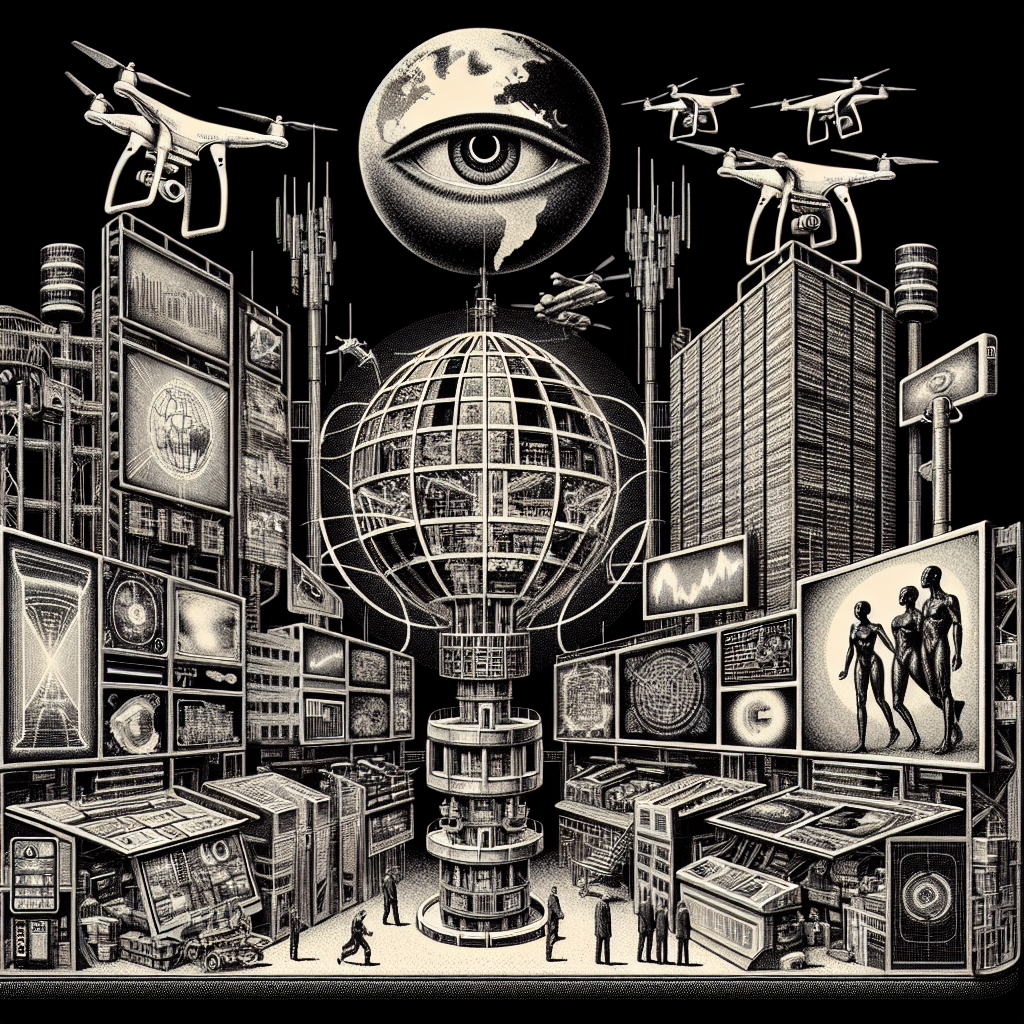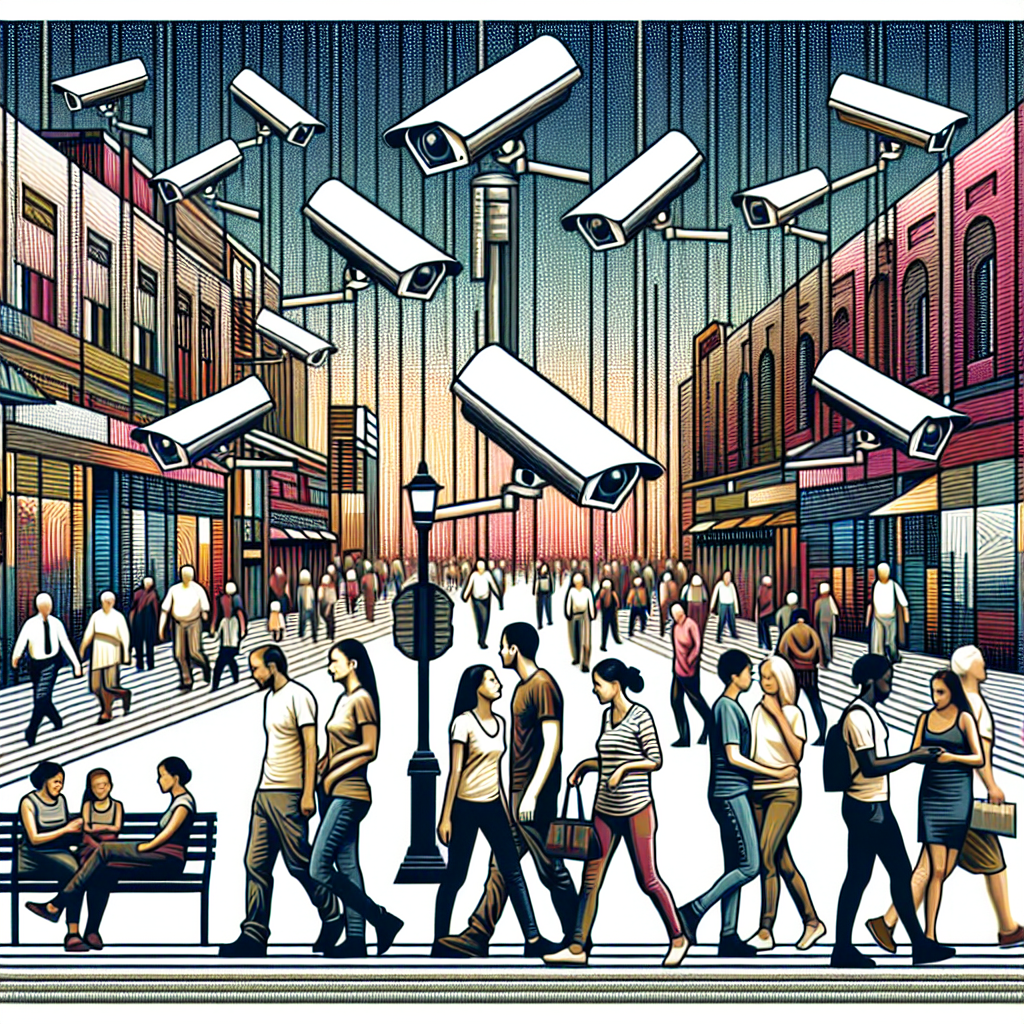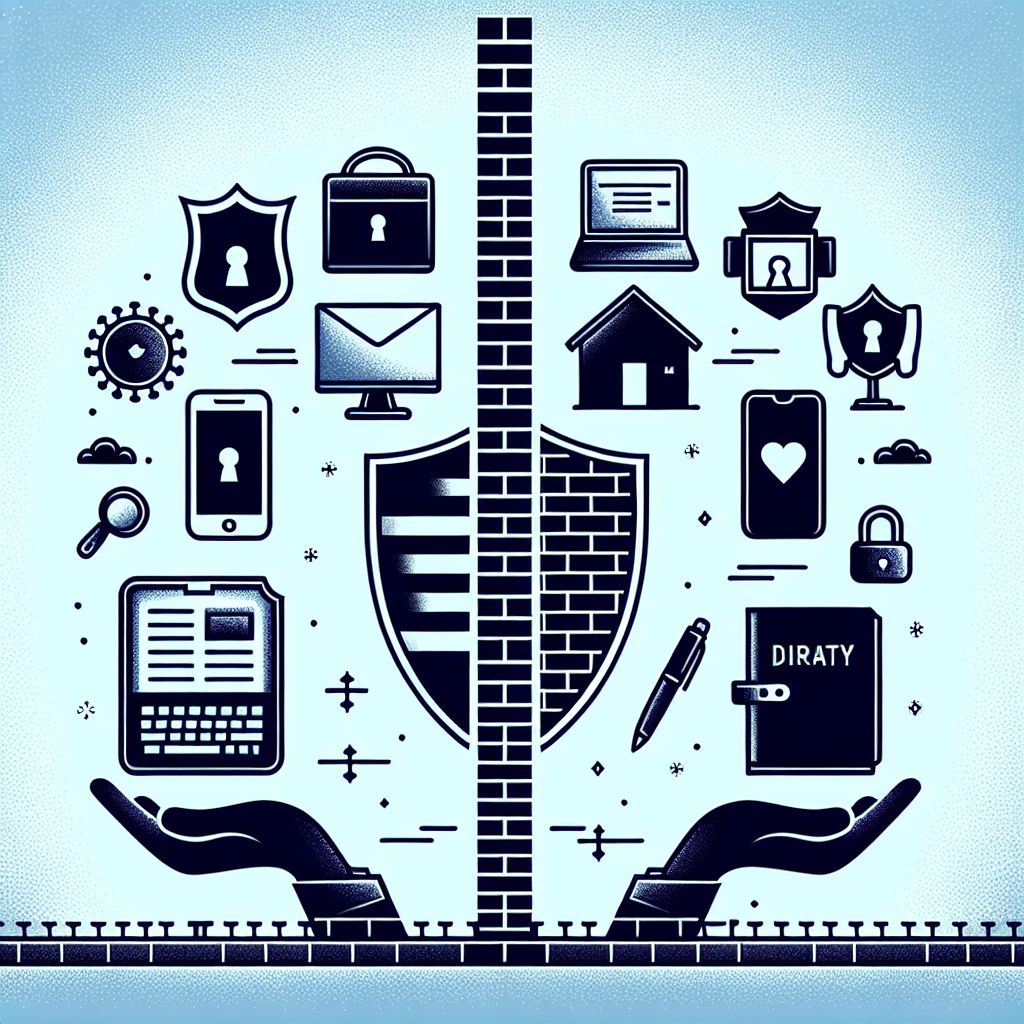Technological Dystopia: The New World Order’s Digital Frontier
The Rise of Digital Surveillance
In the age of unprecedented technological advancement, the balance between security and privacy is under constant scrutiny. Governments, corporations, and various entities leverage critical data to monitor citizens under the guise of safety. Surveillance systems, powered by artificial intelligence (AI), facial recognition, and big data analytics, have transformed daily life into a landscape of observation. CCTV cameras equipped with AI are no longer just passive observers; they actively analyze behavior and track movements in real-time, marking a significant shift towards an omnipresent surveillance state.
Social Credit Systems and Its Implications
China’s social credit system epitomizes the potential consequences of a technologically driven dystopia. This system evaluates citizens based on their behavior and interactions—penalizing those who stray from societal norms and rewarding compliant members. Such a model creates a culture of conformity and self-censorship, where citizens adjust their actions not just to avoid penalties but to earn privileges. The implications extend beyond individual behavior; the notion of social credit infects the fabric of community interactions, ultimately silencing dissenting voices and curbing freedom of expression.
The Manipulation of Information
Information has always been a powerful tool, but its manipulation in a digital dystopia can have severe consequences. Widespread misinformation campaigns, often propagated through social media platforms, disrupt public discourse, breeding division and sowing distrust. Algorithms designed to maximize engagement often prioritize sensational or polarizing content, amplifying fake news. This manipulation of information operates within a feedback loop, where the more divisive the content, the more it is circulated, further entrenching false narratives and eroding the collective understanding of reality.
AI and Employment Displacement
The rise of automation and AI threatens traditional employment structures worldwide. Industries ranging from manufacturing to services are increasingly reliant on AI-driven systems, prompting significant workforce displacement. With robots performing tasks faster, cheaper, and more efficiently than humans, the workforce faces an existential crisis. The displacement extends beyond low-skilled jobs; even sectors requiring advanced degrees, such as law and finance, witness the encroachment of AI. As AI reshapes the labor market, questions about the future of work and social inequality come to the forefront.
Data Privacy and Ownership
With the digital footprint every individual creates, data has become the new oil. Corporations and governments treasure personal data for various purposes—marketing, surveillance, or even manipulation. The lack of robust data privacy regulations exacerbates the issue, allowing entities to exploit consumer data with minimal accountability. The ongoing debates around data ownership reflect a broader existential crisis; who truly owns the data generated by individuals? The commodification of personal information sets the stage for a dystopian reality where privacy is a luxury few can afford.
The Role of Corporations in Dystopia
In today’s world, corporate power often rivals or exceeds that of individual states. Major tech companies—like Facebook, Google, and Amazon—control vast swaths of user data and influence political narratives. Their lobbying power often shapes legislation that favors corporate interests over public welfare. This unfortunate alignment leads to a digital landscape where citizens are unwittingly manipulated by algorithms crafted for profit rather than genuine engagement. The combination of omnipresent corporate surveillance and governmental complicity forms a dystopian nexus that few can contest.
The Threat of Normative Control
Societal norms are integral to human behavior; however, technology has introduced an unprecedented way of shaping these norms. Through the constant curation of content, tech platforms can create echo chambers that reinforce specific beliefs or behaviors. This entrenched ideological exposure can homogenize perspectives, effectively normalizing extreme viewpoints while marginalizing dissent. The impact extends beyond individual users, shaping collective behavior and cultural norms to fit new digital realities.
Psychological Manipulation and Behavioral Targeting
Psychological manipulation has reached new heights as algorithms analyze individual behavior to predict and influence actions. Micro-targeted advertising utilizes insights from user engagement, continuously refining the messaging to elicit an emotional response. The implications are broad, as this behaviorist model not only drives consumer trends but shapes political opinions and social attitudes. The fine line between persuasion and manipulation blurs, raising ethical concerns about the role of technology in shaping human decision-making.
Erosion of Social Cohesion
The divisive nature of technological outreach, including targeted ads and personalized news feeds, threatens the very fabric of social cohesion. By isolating individuals into niche communities, technology inadvertently fosters tribalism, where collective understanding and empathy toward differing viewpoints diminish. The erosion of trust, paired with the rise of conspiracy theories thriving in digital ecosystems, presents a challenge for creating united, resilient societies capable of addressing pressing global issues.
The Future of Digital Resistance
In the face of rising technological dystopia, grassroots movements advocating for digital rights and sovereignty are gaining momentum. Activist organizations stress the importance of transparency in algorithmic decision-making and advocate for robust protections against surveillance. Initiatives aimed at promoting digital literacy—teaching both the potentials and perils of technology—are essential for empowering citizens. Fostering a social awareness around the influence of technology can lead to greater collective resistance against oppressive systems.
Ethical Technology Design and Governance
The future of technological advancement hinges on ethical design choices and responsible governance. Ensuring that technology enhances human life rather than detracts from it requires a paradigm shift in how digital solutions are created. Inclusive dialogue around the ethical implications of AI and data use must inform corporate practices and government policies. Stakeholders must prioritize human values to mitigate detrimental impacts on society, emphasizing transparency, fairness, and accountability.
Decentralization as a Countermeasure
Decentralization presents an alternative framework for resisting a sliding into technological dystopia. Blockchain technology, peer-to-peer networks, and decentralized applications offer avenues for individuals to regain control over their data. By disrupting traditional power structures, decentralized systems propose a more egalitarian approach to resource management and information sharing. These innovations empower users to reclaim ownership and foster digital environments where privacy and autonomy can thrive, countering the centralized control that perpetuates dystopian realities.
Ethical AI Development
To combat the darker facets of AI, ethical frameworks for AI development are crucial. These frameworks should consider the societal impact of AI tools and prioritize fairness and accountability. By instilling ethical considerations in AI design, developers can create systems that promote social good rather than serve merely commercial interests. Cooperation between technologists, ethicists, and policymakers will play a vital role in navigating the labyrinth of ethical dilemmas posed by rapidly advancing technologies.
The Power of Collective Action
Amid rising concerns about technological dystopia, collective action emerges as a powerful antidote. Public awareness and discourse around data rights, information transparency, and surveillance will shape future technology landscapes. Grassroots campaigns and advocacy efforts can leverage community power to hold corporations and governments accountable. By cultivating informed citizenry and organizing for change, a path toward reclaiming digital freedom becomes possible.
Envisioning a Human-Centered Digital Future
As the specter of a technological dystopia looms, envisioning an alternative digital future centered around human values presents an enduring challenge. By prioritizing privacy, inclusivity, ethical technology, and social cohesion, society can reshape its relationship with technology. Balancing innovation with ethical considerations is paramount in preventing the descent into a dystopian reality, allowing technology to become a force for empowerment rather than oppression.
The Call for Digital Awakening
In the face of the new world order’s digital frontier, a digital awakening beckons. Increased consciousness about the societal implications of technology fosters resilience against oppressive systems. Mobilizing for digital rights, advocating for ethical practices, and demanding policy reforms can drive a collective push toward a more equitable future. Embracing technology as a core element of humanity’s evolution offers a powerful avenue to dismantle the constraints of technological dystopia, leading to a renaissance of empowerment, creativity, and connection for all.













Leave a Reply